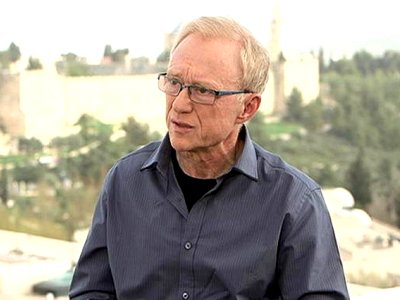
THE EMPTY CHAIR AT THE FESTIVE TABLE
Sometimes the more privileged among us should walk through the dark shadows of life frequented by others and not shirk this Christian duty just because we are able to.
The difficulty with being an author in a problem corner of the world is that people expect you to deal with the one theme they identify with your country. For years Jerusalem born David Grossman has offered us gripping and nuanced accounts of the region’s troubles in his political journalism. By contrast he has resolutely avoided weaving this complex reality into his fiction, rewarding us instead with richly textured stories of human relationships common to all cultures. In 2010 this changed.
His novel, ‘To the End of the Land’, may be considered one of the finest pieces of literature of our generation in which he approaches the most painful of modern conflicts obliquely through the voice of a woman whose son has chosen willingly to return to a battlefront with the Israeli Defence Force after serving as a conscript. Unable to cope with the renewed possibility that her son might die, she drags an old friend on a hike across Galilee, convincing herself that if she is not at home in Jerusalem for the army to come and inform her of her son’s death then it cannot properly be said to have happened. In the old cliché about fight or flight, mother and son go their separate ways.
David Grossman began this novel in 2003. In 2006 Israel went to war in south Lebanon against Hizbollah. Three days before its end, his own son Uri was killed by a rocket launched at his tank. The very trauma he set out to write about had become his fearful possession. On hearing the knock at the door in the early hours of the morning Grossman confesses he knew what was about to happen and, even in the groggy walk from bedroom to front door, sensed that his life was coming to an end as a source of joy. All parents who have lost a child are bearers of a scar that others cannot name or touch. Yet he continued to write the novel.
His success for the western reader is to unravel the tight knot of understanding we hold of certain disputes and to consider the personal strands of narrative it comprises. He is intrigued by the role of family and, in a celebration of one family’s unique ways, asks us to think again about Israelis and Palestinians as kindred people. I listened to him being interviewed at a Jewish Book Week event recently and was most struck by one specific observation. When the citizens of different nations in the region are brought together at special events or conferences, Palestinians often gravitate towards their Jewish neighbours rather than their Arab brothers. In spite of the injustice, suspicion and violence that have wounded their relations, he believes there survives an unusual narrative bond between the peoples. It would be unwise to romanticise this, but if there were only a glimmer of truth here, it would represent a focus for our intercessions.
To pray also for those whose sons and daughters will not grace the meal tables of a festive season ever again is a duty we should not shirk simply because we can. Sometimes, if only briefly, the more privileged should walk through the dark shadows of life frequented by the unusually bereaved like Grossman, a path taken intentionally by the God we worship in Christ as the means of our salvation.
POPULAR ARTICLES

Obama's Covert Wars
The use of drones is going to change warfare out of all recognition in the next decades.

Through A Glass Starkly
Images of traumatic incidents caught on mobile phone can be put to remarkable effect.

What Are British Values?
Is there a British identity and if so, what has shaped the values and institutions that form it?


